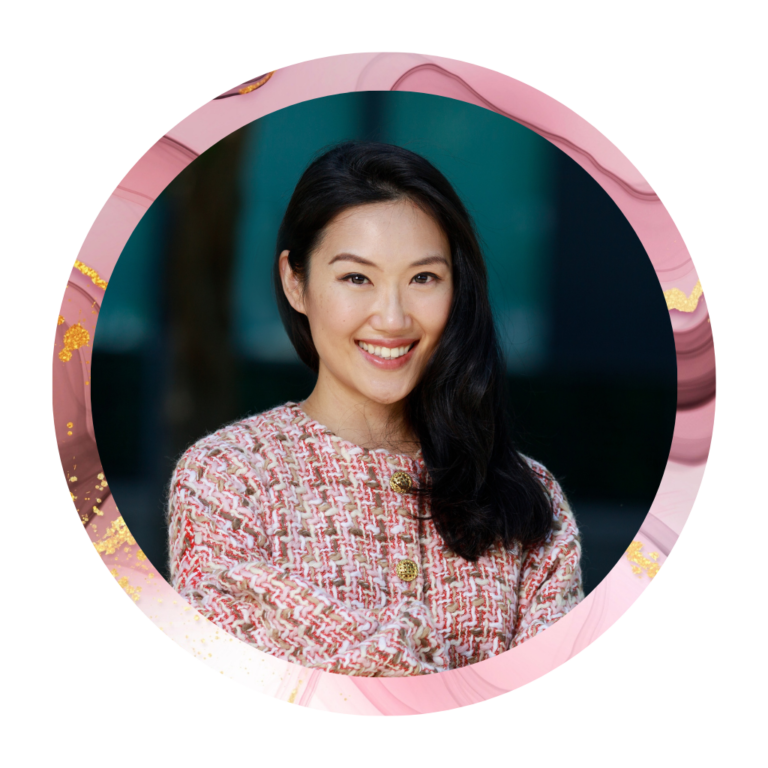Dr. joyce Yung

Meet Our Founder
My story began with childhood journeys back and forth across the Pacific, where I questioned which side of the ocean I belonged to or if I even belonged to any one land at all? My family’s legacy of immigration and survival fostered my awareness of the broader social contexts that shape individuals and families. Like many immigrant children, the challenges that came with straddling bicultural worlds paralleled my parents’ survival and acculturation struggles.
My identity formation was complex but rich with meaning. Eventually, the contradictions in my identity motivated me to know myself amidst the ever-changing scenery. I sought opportunities to understand my cultural diversity and family system to support others seeking agency in their lives.
I received my Bachelor’s Degree In Psychology from the University of British Colombia and went on to pursue a master’s degree in couples and family therapy from the University of Hong Kong. For years I conducted research in family therapy, specifically, on the physiological response and trauma behaviors of children to family and couples conflict. The pursuit further opened my eyes to the confluence of sociopolitical and cultural stressors manifesting as psychopathology within the family microcosm, a powerful awareness that mirrored my personal experience and the suffering of loved ones, but that was rarely recognized nor talked about by mainstream educators and health service providers. I needed more clarity and pursued my master’s and doctoral training in clinical and counseling psychology at Columbia University in New York City.
The richness and multiculturalism of NYC provided invaluable opportunities to be mentored in a vast array of modalities to serve the complex needs of diverse populations. I embrace an integrative approach (i.e. psychodynamic, cognitive behavioral therapy, dialectical behavior therapy, mindfulness, interpersonal neurobiology, relational cultural therapy, feminist therapy, group therapy, and social justice perspectives) to address multilayered mental health concerns and the systemic issues from which the problems are embedded. I also value conversations that draw on collective wisdom, and ancestral knowledge, and promote dynamic cultural exchange to meet the ever-changing opportunities in our increasingly multicultural society. I was further led to opportunities to collaborate with marginalized communities to address issues central to their unique definitions of mental health. Over time, I was steered toward spaces of higher risk and acute symptomatology ranging from under-resourced and under-funded community outpatient care for clients with persistent mental illness, to inpatient and long-term state mental hospitals, to the mental observation units serving incarcerated men at Rikers Island Correctional Facility. Treatment, prevention, and advocacy with community members with serious mental illnesses such as schizophrenia, developmental disability, and addiction intersecting with poverty, homelessness, unemployment, racial, class, gender, and sexual discrimination, community and gun violence, trauma, suicide, social justice reform, and crisis management became a part of my daily repertoire. It was a time when I met many formidable and resilient survivors, unsung community heroes, and civil rights advocates, all of whom I was lucky to work alongside.
One long-term collaboration was with Chinese immigrant co-researchers in NYC Chinatown who identify with serious mental illness in recovery and were receiving long-term outpatient care. Over the years of our social justice-driven discourse through participatory action research, we advocated for a series of institutional changes to help our co-researchers acquire “a seat at the table” on the agency level where their voices were privileged in implementing service changes that were meaningfully relevant to them as stakeholders. The project was recognized by the Obama Administration in 2016 and I was invited to the first White House Summit of the United States of Women (2016) as a “Nominated Changemaker.” To read more about the collaboration, please click here.
The years surrounding COVID have brought about life-changing events on individual, community, and global levels. It was a time where grief, adversity, and upheavals also forced me to grasp the meanings of life, fortitude, and resilience like I had never before. The challenges propelled me on a journey to a new awakening as I embraced my struggles with awareness, acceptance, and mastery. The urgency of this moment in history defined by social, political, racial, and economic unrest, unyielding fear and apprehension, distrust and dis-ease, has further ignited my desire to support collective healing and evolution through greater meaning, connection, and consciousness. I have been deeply compelled to bridge psychological methods with energy practices to create holistic mental health interventions that recognize the magnificence and limitless potentiality of our multifaceted human spirit. Through the culmination of my decades of psychological training, spiritual learnings, and inner transformation, I developed The B.R.A.V.E. Method, a healing program to rapidly identify and shift longstanding negative patterns for breakthroughs and accelerated change.
My strength and greatest joys are to help clients and families fully see and honor themselves as crucial members of their family legacy and communities. My ultimate goal for developing holistic mental health treatments and The B.R.A.V.E. Method is to facilitate humanity’s capacity to regain their sense of wholeness and celebrate each others’ unique brilliance, where connections, growth, and solutions can be radically reimagined, equitable, and abundant for all.

Contact Us.
Keep In Touch
Ask Us Anything. anytime.
- 535 5th Ave 4th Floor, New York NY 10017
- [email protected]
- 845-669-6855
- 315-515-5633
